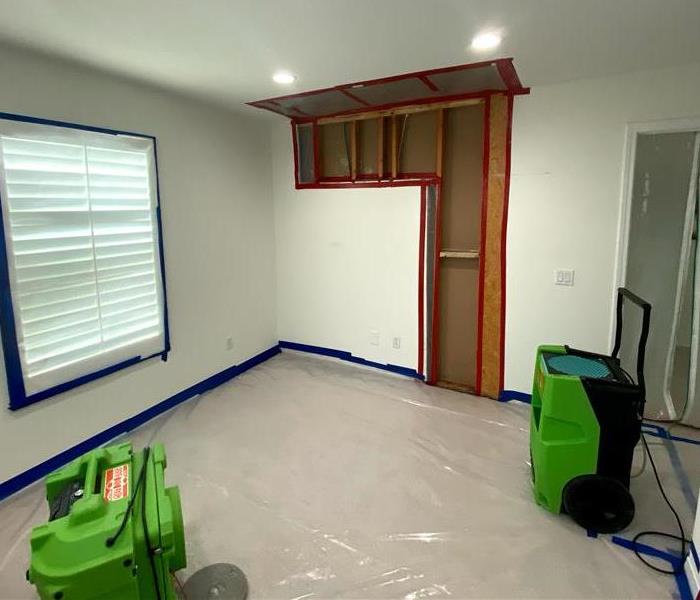Drying and Dehumidification
5/7/2020 (Permalink)
After the water removal step, your floors and walls may look dry at first glance, but they are still wet to the touch. Most building materials, like drywall and wood, are porous and will retain significant water. The retained water will cause these materials to warp, swell, or break down and can also cause mold damage.
Drying / Dehumidification
SERVPRO Franchise Professionals will manipulate temperature and relative humidity to remove the remaining moisture. They use specialized equipment, including industrial air movers and dehumidifiers, to remove water retained by building materials and other hard-to-access moisture. They’ll carefully monitor the progress using moisture meters until the materials return to acceptable drying goals.
- Use Dehumidification Equipment
- Use Monitoring Equipment to Track Progress
Monitor Floor and Walls
They check the moisture levels to monitor the drying process.
- Monitor Floors
- Monitor Walls
Drying Equipment
- Industrial-grade dehumidifiers help prevent secondary water damage like swelling and warping of floors, walls, and furniture.
- High-speed air movers create airflow across walls, carpets, pads, and furniture, which accelerates the evaporation of moisture.






 24/7 Emergency Service
24/7 Emergency Service
